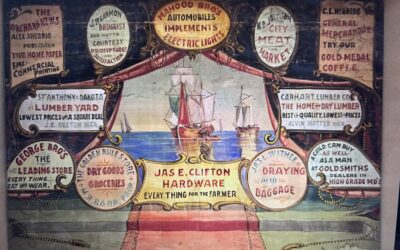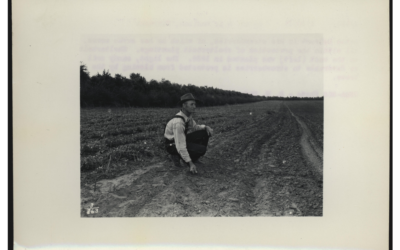Thomas Worrall played an integral part in the struggle in Nebraska against monopoly in the grain trade. His forceful book, The Grain Trust Exposed (1905), as well as a legal suit he pressed the same year, laid the foundation for an action brought by Norris Brown, Nebraska attorney general, enjoining members of the grain trust from restraining trade.
Worrall, a native of Illinois, was a farmer near Agnew and storekeeper at Valparaiso before moving to Lincoln in 1890. He was active in Democratic politics and was appointed postmaster in Valparaiso in 1884 and to a position in the Lincoln post office in 1894. In 1897 he went into the grain and elevator business at Agnew with his brother, John, and later built an elevator at Foley in Butler County. Their small business was soon threatened with bankruptcy unless they agreed to participate in an ongoing scheme to fix prices for grain bought from local farmers.
Worrall later defected from the ranks of the elevator owners and in 1904 established a grain commission firm in Omaha. He explained the reason and the result of his action in The Grain Trust Exposed: “When I grew weary and ashamed of my connection with the trust, and quit it, and again attempted to do business in the open, my former associates, unwilling to permit me to repent and reform, again swooped down upon me, and again were on the point of driving me out of business. This time, instead of capitulating, or allowing myself to be ruined, I went into the courts and invoked the strong arm of the law [a $128,000 damage suit] to save my business.”
The Worrall suit and book (dedicated to Nebraska farmers, their families, and “business men everywhere who believe in a ‘Square Deal,'”) laid the foundation for an action brought by the Nebraska attorney general to enjoin members of the grain trust from setting prices in restraint of trade. On October 17, 1905, the members of the grain trust signed an agreement in court to disband their organization and discontinue their efforts to exclude their rivals from the grain market, making a free market for all shippers and ending the effort at monopoly in the Nebraska grain trade.



